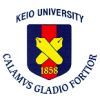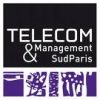 |
Dr. Bin GuoSchool of Computer Science Xi'an, Shaanxi, 710129, P. R. China Email: guobin.keio(AT)gmail.com |
|
|
|
A summary Smart artifacts have been used to support a range of human-centric services. However, there lacks a study on smart artifact based entertainments in future homes. iFun investigates the prospects and issues surrounding designing and playing smart-artifect based games in future homes.
Previous pervasive gaming systems explore the resources that are specially designed for a certain gaming experience, there lacks a general platform that can make use of easily-found resources (e.g., everyday artifacts, photos) in a smart environment and can allow the development of a wide variety of pervasive games. Unlike previous studies, iFun allows users to program pervasive games by exploring easily-found physical (e.g., smart objects) and virtual (user generated contents, like photos, video clips, and music clips) resources in smart homes. The interfaces of iFun system is illustrated above. The interaction between users and smart objects can be detected by a set of user-defined rules. Users can customize what actions to perform when a specific situation or event is detected. In this way, iFun allows users to easily program games according to the resources (smart objects and user-generated contents) in their home and their imagination. A player is playing the Treasure game in iFun. A cup is displayed on the wall, which suggests that the target object is hided in a cup. The player can follow the hints from the On-Wall agent.
User study with university students: Sep. 2008 at Keio University
Please see photos and videos at these links: Last updated: Mar. 31, 2009. |
|





